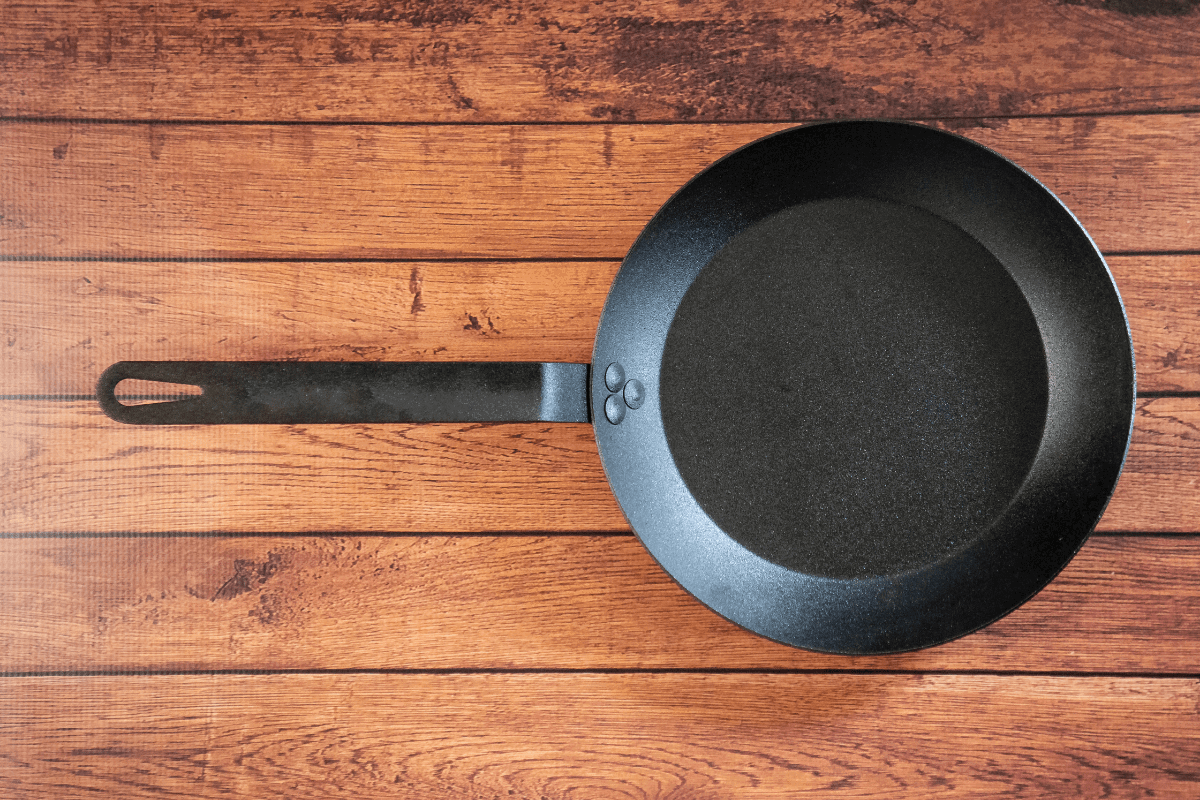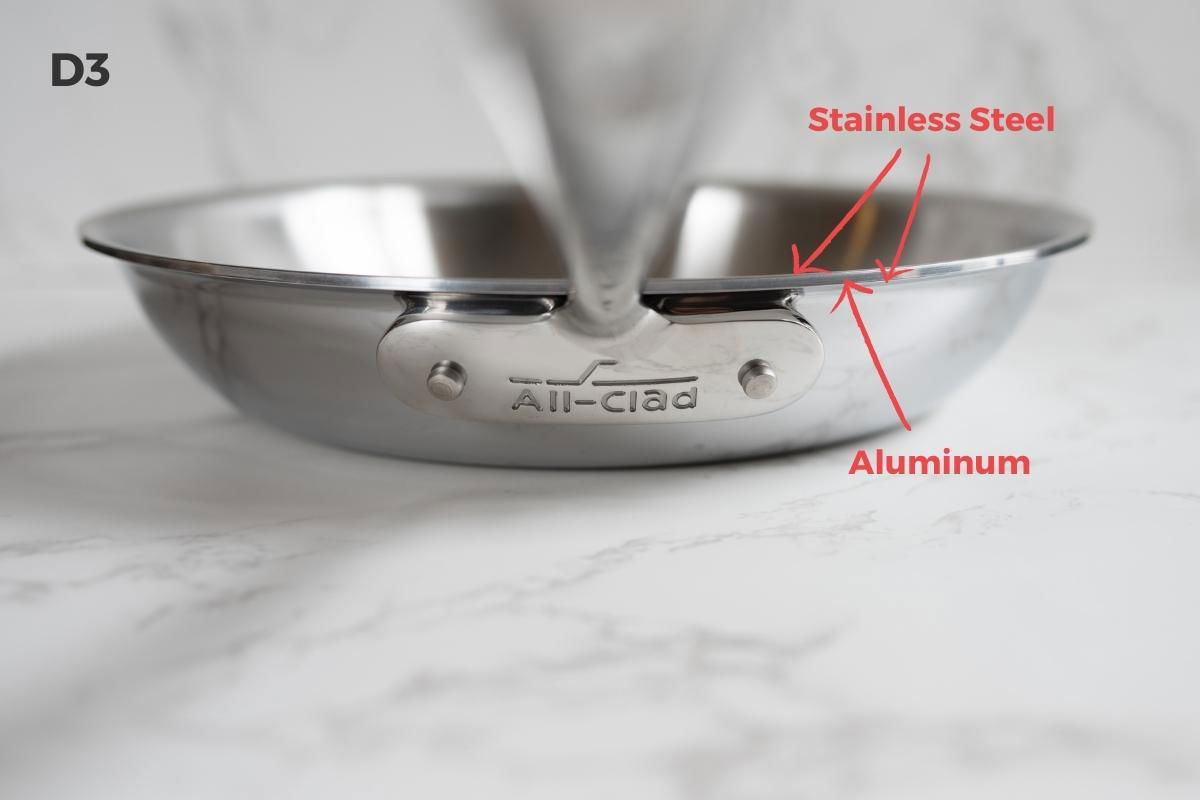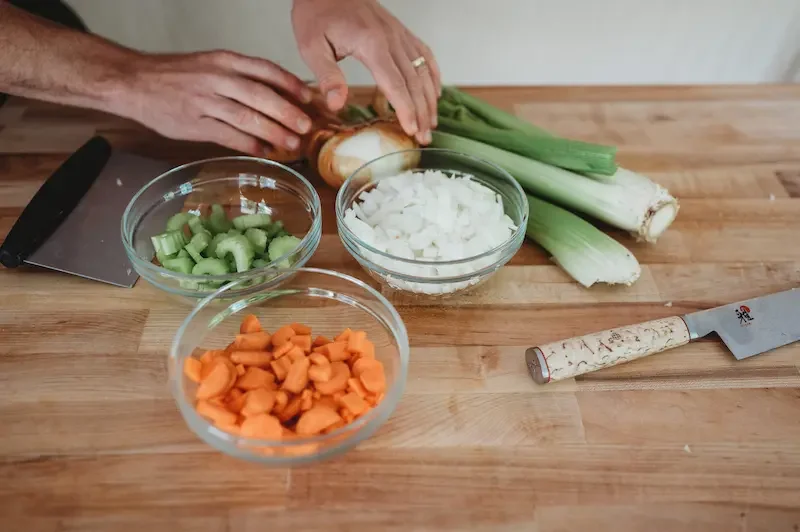Vinegar has been made and used in recipes for thousands of years. A super versatile ingredient in the kitchen, vinegar can liven up everything from meat marinades and glazes to salad dressings and baked goods.
Vinegar can be made from a wide range of ingredients, too. There are types of vinegar made from wine, fruit juice, grains, and even coconut. With so many options, I’m certain there is a perfect substitute for you.
No matter what you need a vinegar substitute for, this list will help you find what you need in a hurry. We’ll cover substitutes with and without vinegar for all your cooking and baking needs.
In This Article
9 Common Kinds Of Vinegar And Their Ideal Substitutes
1. Apple Cider Vinegar

Apple cider vinegar’s punchy and slightly sweet kick makes it perfect for just about any dressing or sauce. It’s also used for pickling and making glazes.
If you need to replace 1 tablespoon of apple cider vinegar, here are your best options:
- White wine vinegar: You’ll need to use double the amount to match the strength of apple cider vinegar. Great for most uses.
- White distilled vinegar: Best for pickling and sauces with low vinegar content, since white distilled vinegar is quite strong. Use a 1:1 ratio to substitute.
- Malt vinegar: Malt vinegar is similar in strength and acidity, so use a 1:1 ratio. While it can be used for pickling, it will darken lighter-colored vegetables like daikon radish and cucumber.
2. Rice Vinegar

This vinegar’s mild and slightly sweet flavor adds dimension to dressings, dipping sauces, and marinades. Rice vinegar is also essential for many Asian stir-fries and noodle dishes.
To replace rice vinegar, you have a couple of easy options to use at a 1:1 ratio:
- White wine vinegar + 1 pinch of sugar: White wine vinegar has a similar color to rice vinegar, but is stronger and more acidic. A pinch of sugar helps balance out the flavors.
- Apple cider vinegar + 1 pinch of sugar: Apple cider vinegar has a touch of natural sweetness like rice vinegar and moderate acidity. It’s still a little stronger in flavor, so the sugar rounds out its sourness.
3. Balsamic Vinegar

Balsamic vinegar’s dark, rich, and sweet taste adds a special touch to vinaigrettes and meat glazes, especially with chicken and pork. Its unique flavor also shines with fruits and vegetables like tomatoes, spinach, and dark berries.
To replace balsamic in a dish or sauce, here are a few top picks:
- Apple cider vinegar + a touch of honey: A close match for the flavor of balsamic, this is a good choice for most recipes.
- Red wine vinegar + a touch of honey: The slight sweetness of honey plus red wine flavor make this substitute a close flavor match to balsamic.
- Chinese black vinegar: Slightly sweet and dark with a well-rounded flavor. Black vinegar can stand in for balsamic in marinades and glazes.
- Sherry vinegar: This Spanish vinegar is slightly sweet and aged, so it’s a good match for balsamic. It does have a touch of nutty flavor that differs from balsamic vinegar.
- Fruit vinegar: Fruit-based vinegars like blackberry and raspberry vinegar can match the fruity notes of balsamic, but they’ll be a bit lighter in taste.
4. Red Wine Vinegar

Red wine vinegar is the special ingredient that makes a Greek salad so irresistible (that and the feta). You’ll also find it in Italian-American salad dressings and marinades.
To replace this punchy, wine-based vinegar, you have four easy options to choose from:
- White wine vinegar + red wine: Use 3 parts of white vinegar and 1 part of plain red wine to make a very close substitute for red wine vinegar.
- White wine vinegar: A touch milder than red wine vinegar, white wine vinegar is still a close 1:1 match.
- Non-aged balsamic vinegar: A medium-grade balsamic vinegar can be used in equal amounts to red wine vinegar. Take care to reduce or cut out any other added sugars in your recipe to account for its sweetness.
- Sherry vinegar: Sherry vinegar is on the milder side and can be used for dressings and pickling. It has a slightly nutty flavor, so take that into account for your recipe.
5. White Wine Vinegar

White wine vinegar is commonly used in salad dressings, dipping sauces, and marinades. Its mild flavor complements fish nicely and works great for quick pickling and canning.
If you need a substitute for white wine vinegar, here are the top picks:
- Rice vinegar: Use this mild, barely-sweet vinegar as a 1:1 substitute for white wine vinegar.
- Red wine vinegar: Great for pickling and dressings, red wine vinegar is a close 1:1 substitute. Of course, its red color will affect the color of pickles made with it.
- Sherry vinegar: Another mild choice for pickling and dressings, with a touch of nuttiness. Use as a 1:1 substitute.
6. Champagne Vinegar

This vinegar that’s only made from chardonnay & pinot noir grapes makes light and scrumptious vinaigrettes. And its special combination of low acidity and bright flavor makes wonderful glazes for pork and chicken dishes.
Since they’re both made from wine, white and red wine vinegars will be the best choices to replace the delicate taste of champagne vinegar. Both can be used as 1:1 substitutes.
7. White Distilled Vinegar

The strongest of all vinegars, white distilled vinegar is commonly used in pickling, canning, dressings, and sauces.
White vinegar is the ideal choice for baking recipes that need acid to react with baking soda. However, if you don’t have it on hand, go for option #1 below.
There are three ideal 1:1 substitutes for white vinegar:
- Apple cider vinegar: This is the best substitute for baking recipes. This vinegar is slightly milder than white vinegar but has a similar punchy flavor, making it an ideal substitute.
- Malt vinegar: This can be used for pickling or general seasoning, but may discolor vegetables like white daikon radish and cucumbers.
- White wine vinegar: This is the ideal substitute you’ll want to use for canning, due to its similar acidity to white distilled vinegar. It’s also great in salad dressings.
8. Sherry Vinegar

This unique vinegar made in Spain can be aged anywhere from 2 to 10 years. Its flavor melds well with marinades, dressings, sauces, and chilled soups like gazpacho. Consider trying it out for pickling, too.
Sherry vinegar’s mild and nutty flavor is hard to replicate, but these wine-based substitutes will give close results at a 1:1 ratio:
- Rice vinegar: Also known as rice wine vinegar, this mild and slightly sweet vinegar is similar in taste and acidity.
- Champagne vinegar: Champagne vinegar’s light and bright taste make it a pleasing addition to any recipe that calls for sherry vinegar.
- Red wine vinegar: The hint of red wine in this substitute helps it work well in any dish that calls for sherry vinegar.
9. Malt Vinegar

Malt vinegar is the obvious choice for sprinkling on fish and chips, but it can also contribute a sharp and nutty pop of flavor to marinades and pickles.
If you’re fresh out, these three 1:1 substitutes can save your dish:
- Apple cider vinegar: Similar in acidity with a touch of sweetness, apple cider vinegar is an easy and adequate replacement.
- White wine vinegar: Great for pickles and marinades in place of malt vinegar.
- Champagne vinegar: Light and zingy in flavor, champagne vinegar will be best for marinades.
Non-Vinegar Substitutes for Vinegar
1. Lemon or Lime Juice

If you don’t have an alternative vinegar on hand, lemon and lime juice are an excellent way to add acid to a recipe.
For most recipes, you can swap out citrus juices at a 1:1 ratio for vinegar, but it’s best to taste as you go. You may need more citrus juice for flavor, or you might prefer to use less to avoid making things too sour.
2. Tamarind Paste

This paste made from the tamarind fruit is quite sour, slightly sweet, and fruity in taste. It’s naturally high in sugar, which makes it delicious in sauces and meat dishes.
Tamarind paste makes a great substitute for apple cider vinegar. The ratio will depend on your dish and how much tamarind flavor you want, so start small and add it to taste.
Due to its sweetness, you may also want to omit any other sugars in your recipe.
3. Wine

While wine doesn’t have the same acidic kick as vinegar does, it can work in a pinch if you have it on hand. It won’t taste as bright, but will still add a nice depth of flavor to your dish.
It’s also a good way to use up the last of that unfinished bottle of wine in the kitchen.
For best results, substitute white wine for white wine vinegar, and red wine for red wine vinegar. This works best in sauces, pasta, and pan-fried dishes.
Final Considerations
As you’re experimenting to find the right vinegar substitute for your recipe, there are 3 key ways you can make sure it’s a good fit.
First, what kind of flavors does your vinegar substitute have compared to the original? Can it be purely sour, or does it need a touch of sweetness?
Or, if you’re using a substitute with a hint of nutty flavor like sherry vinegar, will that complement or clash with the other flavors in your recipe?
Second, consider the acidity and strength of the original vinegar against a potential substitute. For instance, white distilled vinegar is extremely strong and pungent. So you wouldn’t want to use it as a 1:1 substitute for champagne vinegar, which is much lighter and delicate in flavor.
Try to match up the general level of acidity in your substitute with the original one in your recipe. This prevents a drastic change in flavor and sourness. And remember that you can always add a pinch of sugar if you need to mellow the acidity.
Finally, the color of the vinegar substitute may be important for certain applications, like pickling. For example, high acidity replacements like red wine vinegar can be used for pickling but will turn your onions and daikon radish pink.
Frequently Asked Questions
What is the best substitute for white vinegar?
Substitute apple cider vinegar for white distilled vinegar. It has a slightly lower level of acidity and works great in baking recipes as a substitute.
What is the best substitute for balsamic vinegar?
Red wine vinegar with a small amount of honey makes a great substitute for balsamic vinegar by mimicking its sweet and sour flavor.
Can I use wine instead of vinegar?
Wine can be used instead of vinegar in a recipe for flavor, but it won’t have the same brightness and acidity. It’s best used in sauces and pan-fried dishes as a vinegar substitute.







